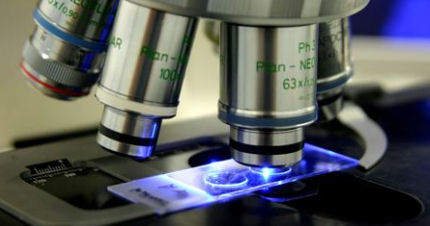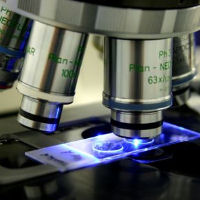Researchers at the University of Liverpool have been awarded £1 million to advance imaging techniques in improving understanding of the processes that occur inside living cells.
The award – part of a £25.5 million investment into microscope technology from the Medical Research Council (MRC), the Biotechnology and Biological Sciences Research Council (BBSRC), and the Engineering and Physical Sciences Research Council (EPSRC) – will contribute towards new microscope technology and expertise to support researchers, the NHS and local biotechnology industries.
The new generation of imaging techniques are able to greatly increase the resolution when studying an intact and living cell. They allow researchers to study live biological processes as they are taking place at fractions of a second. Visualising these tiny biological structures helps further understanding into the causes of a wide range of diseases
Dr Violaine Sée, from the University’s Centre for Cell Imaging, said: “This funding will help advance research into areas such as cancer, ageing, infectious disease and the development of nanomedicines. Researchers will now benefit from the latest imaging technologies to investigate cellular events at the molecular level as they unfold in real time.”
Funding
Dr Raphael Levy, from the University’s Institute of Integrative Biology, said: “Funding at Liverpool will contribute to two new state-of-the-art microscopes for fluorescence detection inside living cells and small organisms. It will also allow for the upgrade of a unique custom-made microscope specifically designed for imaging nanoparticles inside cells.
“Using these new technologies scientists will be able to progress study into areas such as the resistance of malignant cells to anticancer drugs. New technologies will help us better understand the dynamic interaction of man-made nanoparticles with living cells.”

